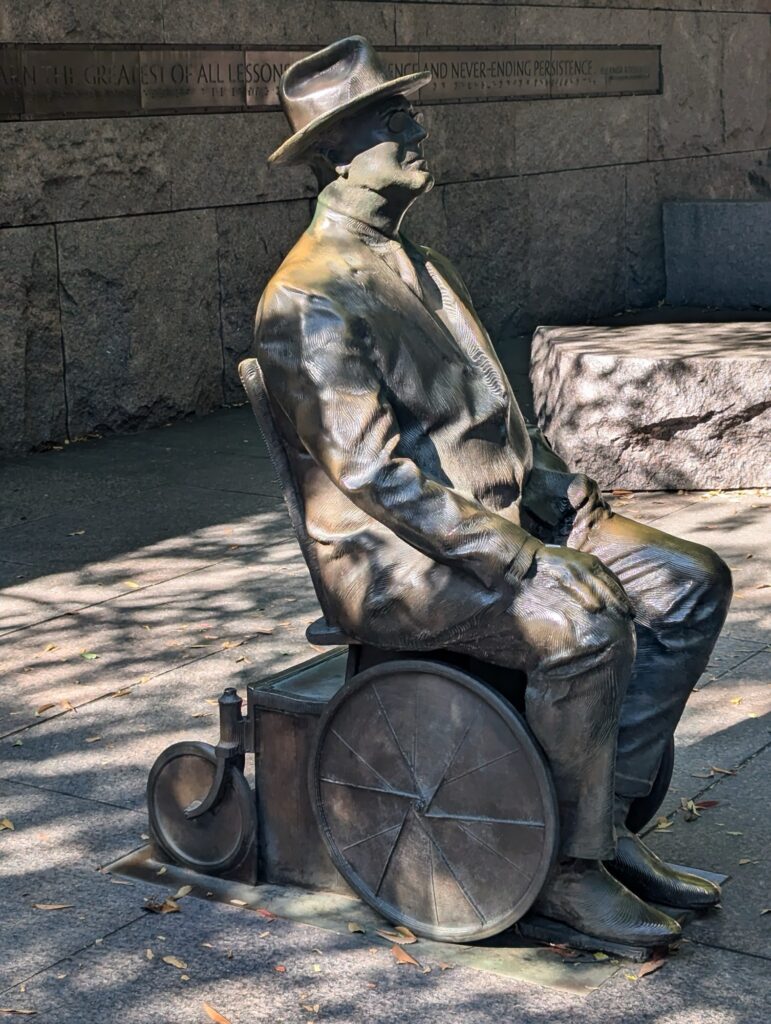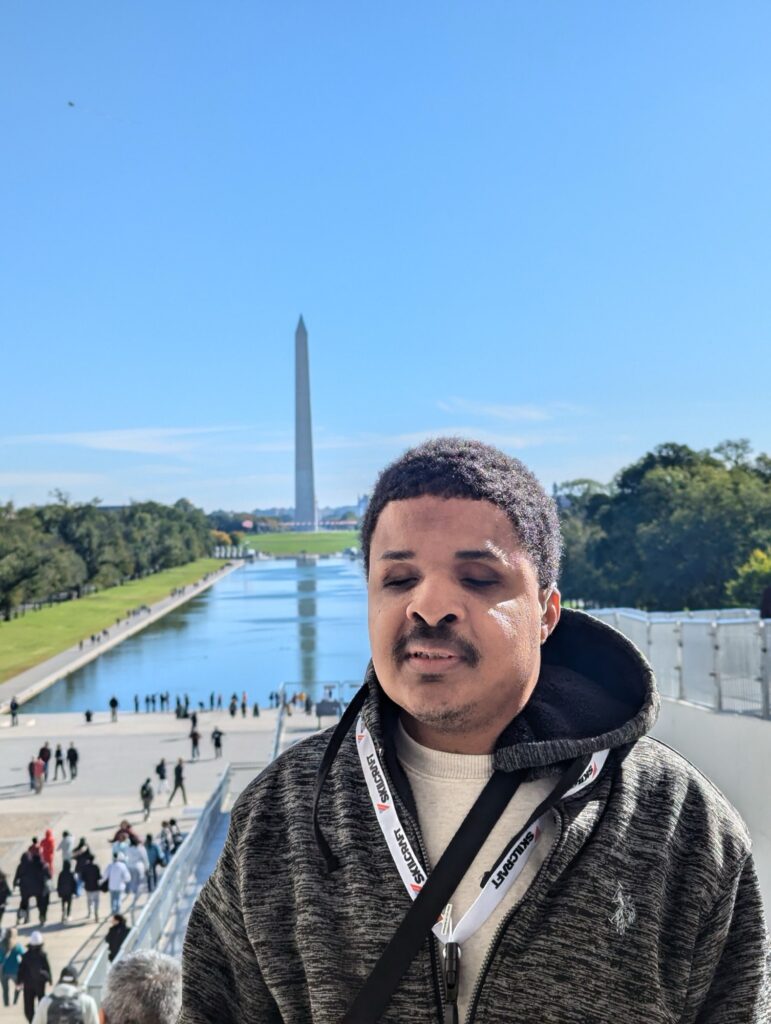Ah, I meant to chronicle the rest of my time at the NIB 2024 Training Conference and Expo more quickly than I have, but alas work, cooler weather, and reading have interfered with my writing. (I’m already about to set a new record for books read [and listened to] in a year, as the old one is 79 and I’m already at 76). Anyhow, I wanted to capture at least one more day of attendance before it all becomes too distant in my ever-aging memory.
Wednesday, October 16: The day dawned crisp and cold. Most times I’ve visited our nation’s capital, the weather fluctuated crazily with temps in the 80s in the afternoon and snow at night. Granted those visits usually occurred in May, whereas October weather is more uniformly dreary. But the sun was actually out on this day as we meandered out of the hotel and across the busy street to a two-story McDonald’s. We don’t have many two-story restaurants here in North Carolina, but I guess you see them more in places where space is a premium.
I had a sausage, egg, and cheese McMuffin, while my wife probably ate a McGriddle (she likes sweet, I do savory). As we ate, she noted that there were some homeless individuals using the space probably to stay warm. I’ve also noticed that, sadly, that city seems to have a high population of unhoused individuals, perhaps because there are more services available? It’s an interesting question. Anyhow, she said there are signs that specifically say “No Loitering,” so if one wishes to remain for an extended time they must either buy food or devise other strategies to make themselves look occupied. I just hope we as a society keep moving in a direction where people will have fewer of these challenges, because the systems will work as they should.
Food consumed, we went to a little store to get snacks for later. I had a giant cup of grapes, because hey grapes are good for the brain. Back in the hotel, we milled about in the lobby for a while then decided to head down to the basement area to see what was going on in the conference. I then realized that I had missed the technology demo that was put on for the employees of the year, because at that time the app I was using to keep up with events was not sending notifications out. This was ok though, as I got to check out some of these devices in the exhibit hall. I’m always fascinated by what they have in these places, but also overwhelmed by the people pulsing from every nook and cranny. My wife had to keep me grounded and inside of the place. I held and listened to the Envision smart glasses speak. Those are nice and built specifically for blind folk, but at $2,000 I probably won’t be getting a pair. The Meta Ray-ban glasses are a likelier candidate, though I might just hold out and wait for a competitor as that market is now starting to come alive. Many of my trainees at work really want me to acquire those though, so I can show them how to use them.
Anyhow, I also checked out a Freedom Scientific workstation, equipped with a computer running JAWS for Windows and, more interestingly to me, a Focus 40 Braille Display. This is another device some of my trainees would like me to get for demonstrations, but alas. It had a whole lot of buttons and switches, and it is powered by a Perkins-style braille keyboard as opposed to my Mantis QWERTY device. I prefer the latter for writing, but the Focus does have many features that could make it desirable.
After checking those out, my wife and I decided to do a whole lot of, welll… nothing. Hey, one of the rewards of this trip was to be able to relax if one wished, and how often do you get to crawl back into bed and sleep on Wednesday afternoon. It was glorious, but I just wish I had drank more water as I tend to dehydrate easily if I do not and paid for this lacking later. Fortunately I was ok.
At about 5, we opted for another fine-dining experience and one we can no longer get in our area, and ventured to McCormick and Schmick’s. We had visited this chain in Raleigh for our “halfversary” after the first six months of marriage and fallen in love with it, at which point they took it away in favor of a Mexican restaurant. So we said whenever we got to a city with that establishment we would check it out again. Arlington did have a location.
This time, I ate some kind of salmon and mashed potatoes. It was delicious, if a little expensive. And as was the case in Raleigh, I loved the ambience of the place as it wasn’t too loud and we could easily have a conversation.
Before getting a Lyft back to our hotel, we walked around that area a bit exploring some of the ice cream shops and stores they had. You could tell we were in a different city, though of course it still had nowhere near the hustle of a New York or Philadelphia. I enjoyed the feeling.
And that was the crux of Wednesday, the midpoint of our trip. A little learning and a lot of rest. We sure needed that rest for Thursday’s tours, coming up in next post.

